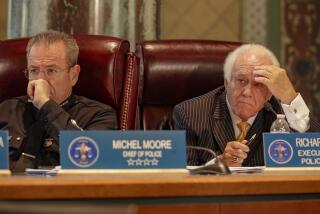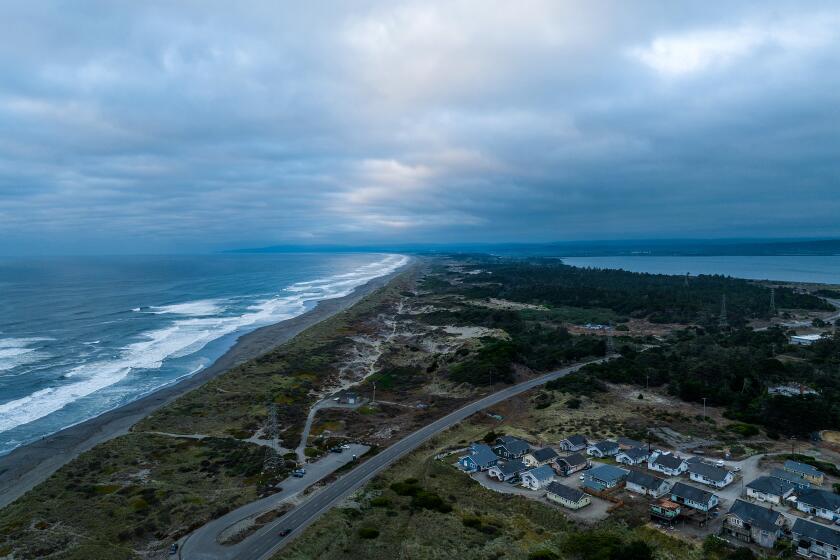THE FIGHT AGAINST CRIME: NOTES FROM THE FRONT : Clamor Over False Alarm Calls Continues
With burglar alarms sending out alerts from thousands of buildings around the clock, all over town, the Los Angeles Police Department and the alarm industry are at odds over what happens next.
To police, the number of false alarms is alarming.
The time wasted responding to them takes officers away from dealing with real crimes, the LAPD complains.
So, hoping she had come up with a way to end months of debate over the issue, Los Angeles City Councilman Laura Chick on Tuesday proposed a measure that has the backing of the alarm industry.
Under the proposal by Chick, who represents the southwestern San Fernando Valley, alarm companies would have to call the owners or managers of alarm-equipped buildings by telephone to verify the need for a police presence after an alarm is triggered.
If a building occupant confirmed that the alarm was triggered accidentally, the alarm company could tell police to ignore the call. But if the alarm company could not verify whether the call was genuine, police would be dispatched as usual.
It marked the most recent episode in a long and complex debate.
Last month, a complaint to the LAPD by an alarm company, which was not publicly identified, triggered an internal investigation into allegations that officers supplied the City Council with bogus information, exaggerating the number of false alarms to ensure the passage of a tough ordinance.
There is no word on whether the investigation uncovered any wrongdoing.
Chick offered her measure as a compromise with an ordinance proposed several weeks ago by Councilman Marvin Braude which drew howls of protest from the alarm industry.
Under Braude’s measure, police would not respond to alarm calls until a break-in was verified by a building occupant or the alarm company, either by a security guard or video surveillance cameras.
Whereas Chick’s measure attempts to withhold police response to alarm calls that are proven false, Braude’s proposal would delay all police responses until alarm firms verified that the calls were authentic.
Police backed Braude’s proposal but alarm company representatives said the cost of adding security guards or surveillance cameras would make owning an alarm system too expensive for many residents and business owners. The average monthly fee for a residential system, they said, could jump from $25 to about $55.
Vince Nigro, president of the Los Angeles Burglar and Fire Alarm Assn., commended Chick for her compromise attempt, saying it “serves as a very good starting point” and would not increase the cost of owning an alarm system.
Nonetheless, the City Council voted to send it to the Public Safety Committee for further study--which infuriated Chick.
“This is about public safety,” she said. “This is supposed to be our No. 1 declared priority.”
Chick’s measure would also impose an $80 fine on the alarm system owner for each false alarm call after the third call within a 12-month period. Police currently impose fines after the fourth call.
According to a police report, 95% of the 161,000 alarm calls made last year were false and accounted for 18% of all calls for police service, costing the city $2.8 million in lost police time.
Chick’s proposal would also make it a misdemeanor, punishable by a fine of up to $1,000 and one year in jail, to fail to register an alarm system with police. Currently, only about a third of the city’s 300,000 commercial alarm systems have the proper permit.
Chick acknowledged that her measure may not reduce the number of false alarm calls as drastically as Braude’s proposal. But she insisted that a compromise measure is better than none.
“I believe this is a good beginning,” she said.
But some council members criticized Chick for bringing the idea to the council before the Public Safety Committee had a chance to study it. The committee is scheduled to hear the proposal on Aug. 29.
More to Read
Sign up for Essential California
The most important California stories and recommendations in your inbox every morning.
You may occasionally receive promotional content from the Los Angeles Times.











